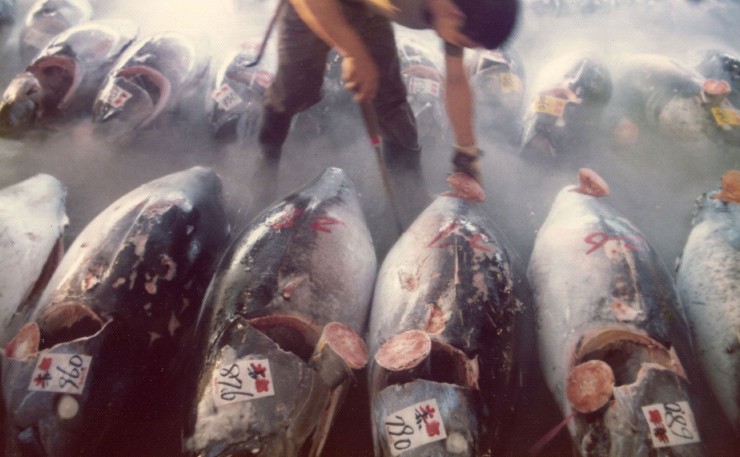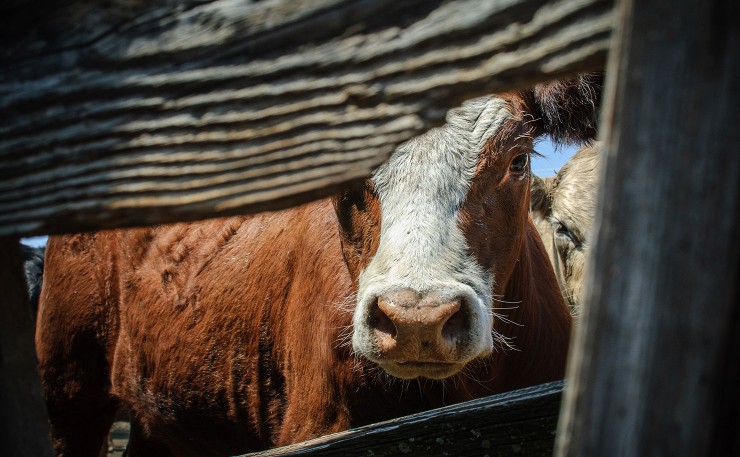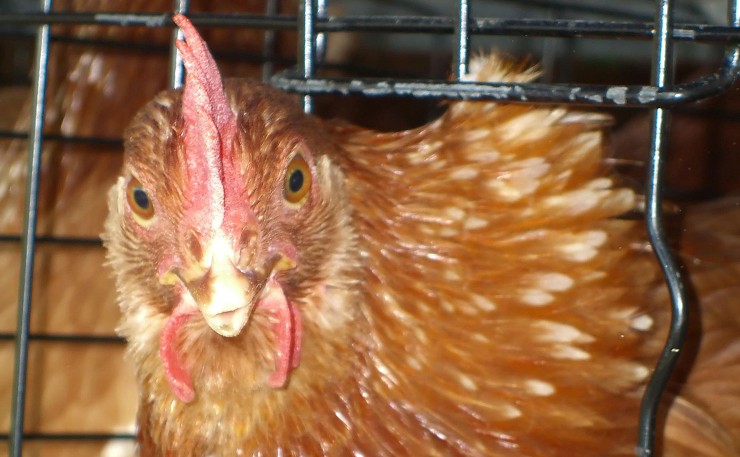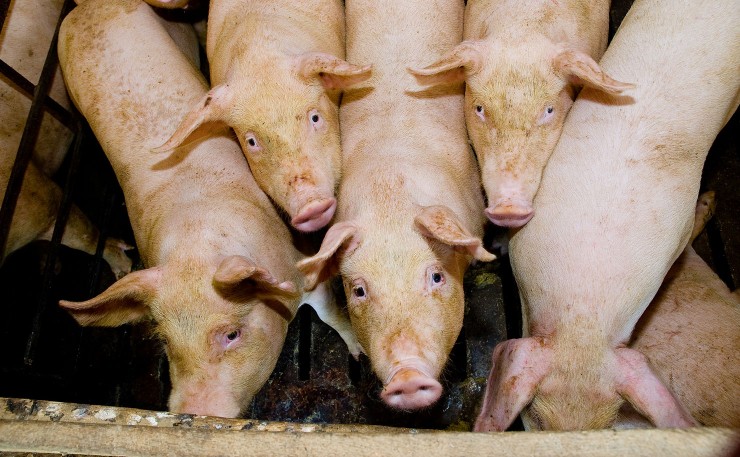Geoff Russell, a regular New Matilda contributor weighs in on all the good reasons to avoid red meat. And cancer is only one of them.
In 1975, the population of Japan was 111 million and they were getting ~20,000 bowel cancers annually. By 2012 there were 128 million Japanese and they were getting 112,000 new cases of bowel cancer annually.
The couple of decades before 1975 had seen a major dietary transformation in Japan. They started eating less rice and more meat. Prior to this, all meat, and particularly red and processed meat, was rare in Japan.
The well-accepted causes of bowel cancer are: red and processed meat, obesity and inactivity. The only big change in Japan was meat; obesity is still low in Japan and inactivity probably likewise because these two tend to hang around together.
So does it look like red and processed meat only contributes to 20 percent of bowel cancer risk as announced by the World Health Organisations major cancer research arm IARC? No.
I can’t help noting here the bizarre and literally deadly paranoia in Japan (and Australia) over Fukushima radiation, which won’t produce any kind of blip in their cancer statistics compared to their (and our) continued acceptance of red and processed meat to the tune of the vast majority of those 90,000 extra bowel cancers per year.
But back to the main point… what’s the problem with the WHO/IARC estimate? It’s one of the occasional duds that flow from current dietary research. Not that I’m accusing anybody of incompetence, but there is a major problem doing dietary research involving meat and dairy in the West because building proper control groups is tough.
Imagine doing smoking research without a control group of “never-smokers”? It would be bloody silly and nobody would do it. But they do the same thing with meat research all the time.
If you compare people eating high levels of red meat (high in this case is once a week) with people eating much higher levels (meaning multiple times a week, including bacon and ham for breakfast and lunch) then you can’t find the true impact.
I call once-a-week high, because for people in low cancer parts of the world, it is high.
Consider, for example, Japan in 1961. The production of red meat was 77 grams per person per week and that’s a carcase figure, meaning the amount of actual meat consumed is somewhat less, and in Japan, as elsewhere, the rich will be eating the lion’s share.

A decade later the red meat supply had more than tripled and the bowel cancer tsunami was about to form. The Japanese have always been long lived and the bowel cancer rise hasn’t affected when they die, but how.
The natural rate of cancer around the world, where red and processed meat isn’t common, is about 1/3 that of where it is common. And that figure is for all cancers and age standardised.
For bowel cancer, the figure is even lower; We have an age standardised rate of almost 40 new cases per 100,000 people per annum, but in large parts of the world the age standardised rate is well under 10 (e.g., Africa, India); like it used to be in Japan.
Without a good control group, standard nutritional research, like that used to derive the 20 percent figure, won’t reveal the size of the problem.
Similarly, if many of those in your low red meat group used to eat much higher levels, meaning they ate a “normal” diet until it made them sick and they started to reduce the animal products, then your control group is still rubbish because the damage has already been done.
Cancers take decades to grow, so if you want to find out why a person got cancer at 50, then find out what they were doing between 20 and 30.
So until there are large cohorts of lifelong vegans, or as in traditional Japan and many other parts of the world, people who are effectively vegan, dietary research will throw up duds like the 20 percent link between red meat and bowel cancer. Which doesn’t make the research useless; far from it.
Data like that which I presented from Japan doesn’t prove causality, whereas the careful comparisons of prospective epidemiological research can show a dose-response which is a critical part of establishing causality.
Red meat – it feels like we’ve been here before?
For the record, this isn’t the first time a big international organisation fingered red and processed meat. Back in 2007, it was the World Cancer Research Fund (WCRF) and the American Institute for Cancer Research (AICR); they said clearly and unambiguously that red and processed meat cause bowel cancer and identified other causes.
They also said red and processed meat might be implicated in some other cancers, but that the evidence on bowel cancer was solid.

Now, eight years on, the evidence has only become stronger, and its the World Health Organisation (WHO) and its International Agency for Research on Cancer (IARC) saying much the same thing.
Journalists have been hitting the phones, just like they did in 2007, desperately searching for anybody with a vaguely relevant title to provide “balance” to their stories.
The Age began by reprinting a Washington Post article quoting the North American Meat Institute and a couple of Professors. The WCRF report had 150+ scientific authors, so if Professor counting was the name of the game, The Age is still down by 148.
They followed up a day later wheeling out the big guns – notable non-epidiologist Barnaby Joyce, together with a butcher, a pig farmer and both Meat and Livestock Australia (MLA) and Australian Pork Limited (APL).
The Guardian quoted an “independent” consultant who acknowledges working for the meat industry and a retired head of a UK research body that traces its own history back to the National Institute for Research in Dairying.
The ABC went for local people, even getting comments from our incoming Chief Scientist, Alan Finkel who, pretty clearly, doesn’t know much about the topic and should have said so.
So much for balance.
Of all the reasons not to eat meat in general and red meat in particular, self interest shouldn’t be top of the list. After all, methane from livestock will have a larger warming impact over the next 20 years than all our coal fired power stations, so concern for the climate should be enough.
And then there’s the animals themselves. Pig meat is the prime component of most processed meats and almost all of this is factory farmed in barbaric conditions.
Concern for animals should be enough.
But despite powerful altruistic reasons not to eat meat, news about meat’s disease causing properties still seems to raise hackles quicker than mentioning Slater and Gordon and suggesting a class action against pig and cattle farmers for putting people in cancer wards.
It’s not like they didn’t know, they’ve had 8 years now since the WCRF report to change jobs.
Perhaps the defensive, angry blustering is because these announcements cut across the lies people tell themselves about needing to eat meat.

There’s a growing body of literature about the psychological games people play to maintain a self-image of caring about animals while also eating them. The obvious falsehood about it being necessary is high on the list.
Meat isn’t just unnecessary, but red and processed meat is an environmental and health disaster on multiple levels, and factory chicken production is simply barbaric. Most chickens are crippled for most of their lives and the conditions are perfect for breeding new diseases with horrifying potential.
The WHO/IARC announcements should serve as a wake up call to the pig and cattle industries… they are on borrowed time, the problems will only get worse.
Donate To New Matilda
New Matilda is a small, independent media outlet. We survive through reader contributions, and never losing a lawsuit. If you got something from this article, giving something back helps us to continue speaking truth to power. Every little bit counts.




